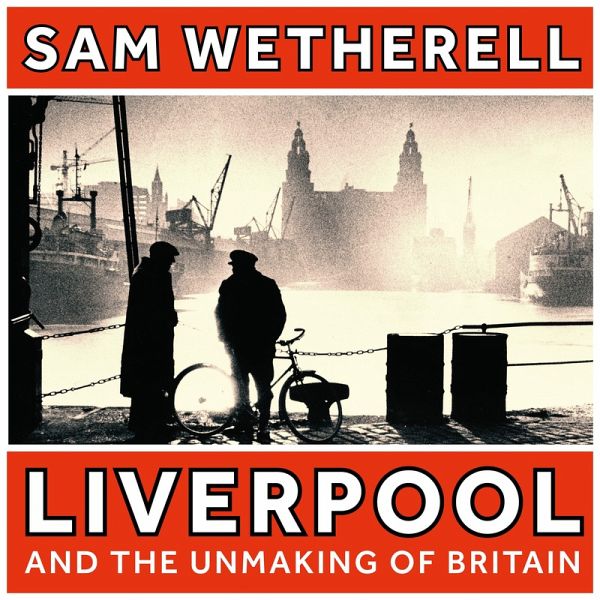
Liverpool and the Unmaking of Britain (MP3-Download)
Ungekürzte Lesung. 789 Min.
Sprecher: Stevens, Adam

PAYBACK Punkte
9 °P sammeln!
Bloomsbury presents Liverpool and the Unmaking of Britain by Sam Wetherell, read by Adam Stevens. Few cities in the world are as famous as Liverpool, the home of the modern world's most celebrated rock group and of a legendary football team. The city is equally notorious for its poverty, its ethnic and racial divides and, above all, its decline. For Liverpool was once a major port, growing rich on slavery, on trade with the Americas and the British Empire's outposts in Africa and Asia. In the 1980s, it was described as 'obsolete'. Yet the city fights on. This is the epic history of Liverpool s...
Bloomsbury presents Liverpool and the Unmaking of Britain by Sam Wetherell, read by Adam Stevens. Few cities in the world are as famous as Liverpool, the home of the modern world's most celebrated rock group and of a legendary football team. The city is equally notorious for its poverty, its ethnic and racial divides and, above all, its decline. For Liverpool was once a major port, growing rich on slavery, on trade with the Americas and the British Empire's outposts in Africa and Asia. In the 1980s, it was described as 'obsolete'. Yet the city fights on. This is the epic history of Liverpool since the Second World War. It is a story of vast docklands shrinking and eventually vanishing when corporations discovered they could shift goods in containers and dispense with human workers, of industries like car manufacturing mushrooming and disappearing, of huge new suburbs being built and neglected. It is a moving and horrifying narrative of casual racism – Chinese sailors deported en masse in the aftermath of the war, systematic discrimination against the city's Black population – and of resistance, culminating in the Toxteth riots in 1981. It is the story of a city fighting against a descent into obsolescence. Liverpool also becomes a prism through which recent British history is brought into a new focus. It is the fascinating history of a single, iconic city. But it is also a warning of what the future may hold for many more communities. The following recording contains instances of racist language, as well as themes or characterisations which listeners may find offensive. In some instances we have chosen to bleep the most offensive language in this text. We have done so carefully and in a limited way to ensure the coherence of the text.













